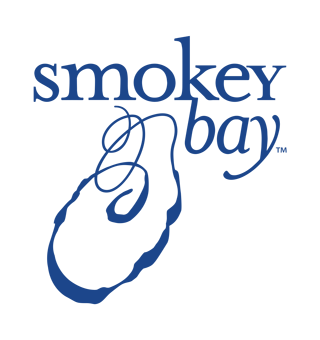Albacore Tuna: What to know when buying
Albacore Tuna, species name thunnus alalunga, is ubiquitous in that it is found in all the world’s oceans. The commercial fishing of albacore is focused on the Pacific Northwest, the South Pacific, Indian ocean, North and South Atlantic. As a rule of thumb, the colder water albacore has higher fat content and is a smaller fish about 10 to 35 lbs each versus its warmer water counter part 60 to 80 lbs. However, both warm and cold water albacore are in high demand and used for various cooking applications.
It doesn’t take long for us to realize how prevalent and valued this species is in our domestic food system. From canned tuna at your corner store to sashimi, sushi, poke, and pan seared steaks and sandwiches, it is one of the most widely consumed fish in North America. The albacore tuna that Smokey Bay sells is a blast frozen -36 C IVP (individual vacuum pack) loin from larger sized Albacore. Each loin ranges from 3 to 5 lbs or 5 to 8 lbs and is sold in 30 lbs case. The grade is AA which is suitable for both raw and cooked consumption.It has white flesh and mild flavour.

Buy Albacore Tuna or get a Price Quote
The commercial sales of Albacore tuna are influenced by various factors: the freshness of the catch, the method of fishing, and the management of the fishery. Here are essential characteristics and qualities of Albacore tuna that buyers, distributors, and chefs might find relevant:
Flavour and Texture:
- White Flesh: Albacore tuna is known for its pale, white flesh. It has a mild flavor compared to other tuna species.
- Firm Texture: The texture of Albacore is firm and meaty, making it suitable for various culinary preparations.
- Fat Content: Tuna grades are often classified by their fat content as either lean or fatty. Lean cuts have less visible marbling and lower fat content, resulting in a firmer texture.
Sustainability and Quality:
- Global Distribution: Albacore inhabits tropical and temperate regions across most oceans, including the Atlantic, Indian Ocean, Indo-Pacific, and the Pacific Ocean.
- Fishery: The Albacore tuna fishery Smokey Bay Seafood sources from employs sustainable practices, such as hook and line gear (trolling) to minimize by-catch.
- Quality Preservation: Immediate stunning, bleeding, and freezing at -30°C preserve the flavor and texture of Albacore.
Cooking
- Once you have cut Smokey Bay albacore tuna loins you can eat raw or you can cook them in various ways such as grilling, pan-searing, or oven-baking. Remember, when cooking Albacore Tuna Loins, it’s important not to overcook them to maintain their delicate texture.
Smokey Bay Seafood imports albacore tuna from a dedicated premium fish plant. For nearly a decade our customers have loved our tuna loins primarily because of the quality, flavour, size, and price.
Smokey Bay is confident that all our albacore products are of the highest ethical and health standards. Each importation we do is accompanied by a Captains Catch Certificate that describes the fishing method and equipment used. All our albacore is Dolphin and Shark Safe, meaning that mitigation measures are in place to prevent the unnecessary, cruel, and wasteful harvest of these protected species. Certificates of Origin determine the pedigree of the fish, along with our own company audit, prevents any IUU fish from entering our supply chain. Government certified health certificates are provided; and laboratory testing is done to check for histamine and heavy metals on each import we do.
This is further backed up by Canadian Food Inspection agency audits and sampling which is done periodically throughout the year as part of our Safe Food for Canadians Regulation license. You can be assured if the seafood is deemed good enough for consumption in Canada it is good enough to eat anywhere in the world.

